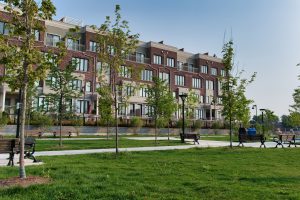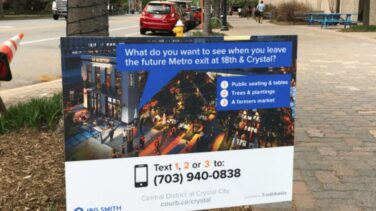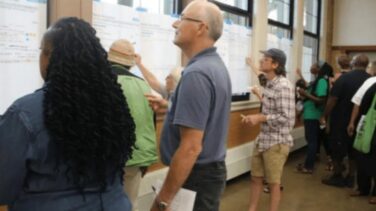When I first moved to the suburbs, I heard my neighbors complaining about development in our city. “Too many condos.” “Too much traffic.” “The developers are in the mayor’s pocket.” Basically, all the gripes you see in many neighborhood groups on Facebook.

But what so many of them fail to realize is that our street was, at one point, a new development. A different type of development, but a development nonetheless. Picture a street of cape-style homes – all built by one developer, at once, in the 50s.
So much of our housing stock in urban and suburban America is a direct result of development – our favorite shops, workplaces (well, before COVID at least), chosen healthcare facilities and so much more.
But Emily Badger of the New York Times posed a question last year that I still think about often, “When did development become such a dirty word?”
Maybe my positive attitude about development is rooted in my career path. I’ve had a chance to see so many owners/developers that care deeply about what they build and the positive change it can spur in our communities. Perhaps it’s also because I grew up in a city that struggled economically while surrounding communities thrived because of investments largely driven by real estate – from new housing to new hospitals.
Based on where I sit, here some common misconceptions about development that I hear – and what my experience has actually been in working with real estate developers.
#1 The developer doesn’t live here. They don’t care.
Most development companies aren’t big corporations. Instead, they are small businesses or what we call mid-market firms (think a 100-200 person company, spread across a couple of locations). When I think of developers building in my community, most either live here or in a neighboring community.
Yes, there are big national real estate developers, but many of them have local offices in the markets where they’re working. So even if it’s a big corporation, there’s typically a local, on-the-ground perspective. But no matter what, these teams care so deeply about the projects they design and build. These projects are their calling card and reputation all wrapped up in one.
#2 Development doesn’t help our local economy.
Developments give local economies a short-term boost in job creation when a project is being built (architects, construction teams, landscapers, consultants, etc.), and also a long-tail benefit (think about all the people to have to manage and maintain these buildings plus work in the retail spaces, restaurants, etc.).
More firms are also committing to using local vendors, especially small, women or minority-owned businesses, to bring their projects to life.
#3 The developers are getting rich quick.
In this business, you hear the phrase “how things pencil” often, which means how can we move around costs, address community needs, add additional housing units, etc. so they can still make a profit. But overall, the margins on ground-up development projects are tight. Construction and material costs are at all-time-highs. Development companies are also trying to find new ways to address sustainability and other community benefits like streetscape improvements.
One thing I didn’t realize before I started working in this industry is that there are not-for-profit development organizations, community development organizations (CDCs), and state agencies that spur many hyperlocal projects that aren’t actually profiting from their work.
Like most things these days, I don’t think development is inherently bad. Yes, there are bad projects. Yes, gentrification and housing affordability are real issues we haven’t solved yet. But developers, especially the ones we work with at coUrbanize, are thoughtful about their work and the impact it has on our communities. That doesn’t mean every community member will get exactly what they want, but it does mean that developments typically net out as positive additions to where we live. And in 2020, that’s good enough for me.
– Courtney Porcella, VP of Marketing & Operations at coUrbanize


